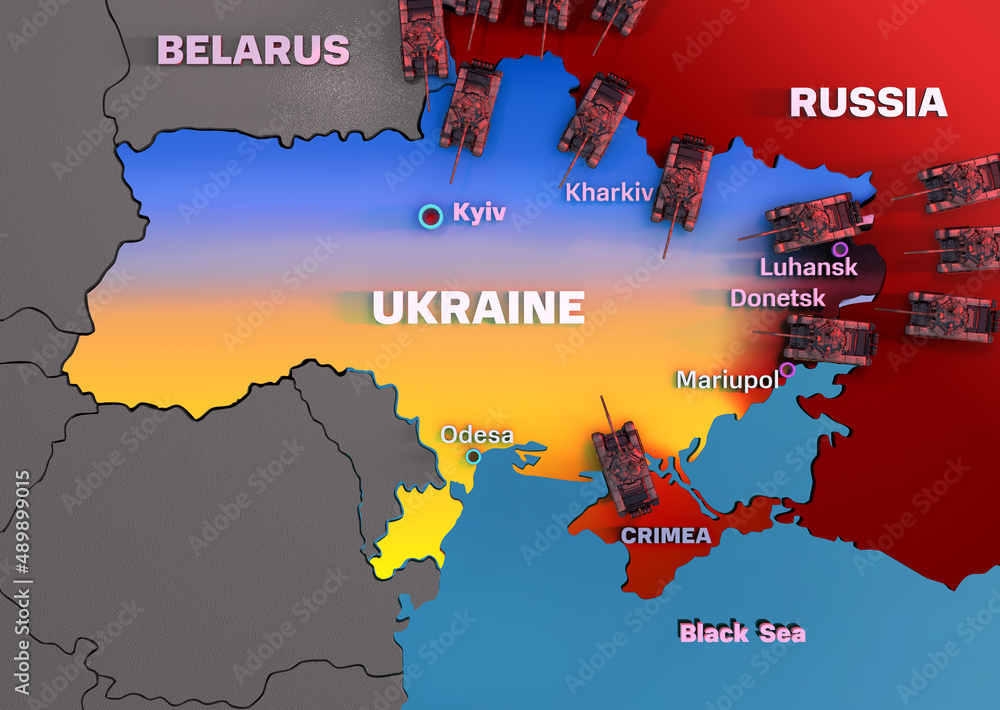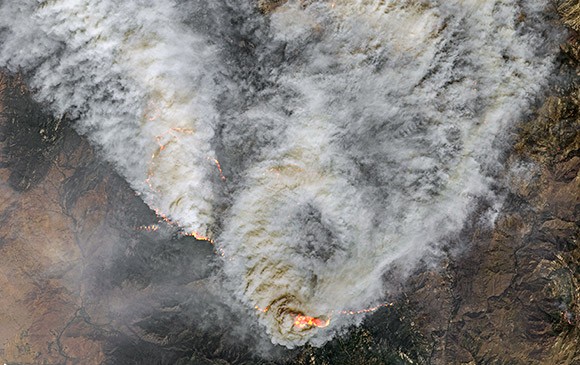The US, China, And Greenland: A Complex Geopolitical Situation

Table of Contents
Greenland's Strategic Importance: A Melting Ice Cap and Rising Stakes
Greenland's significance transcends its icy landscape. The island possesses immense strategic value, fueled by its natural resources and geopolitical location, all within the context of a rapidly changing Arctic.
Greenland's Natural Resources: A Treasure Trove
Greenland holds a wealth of untapped natural resources, making it a highly attractive target for global investment. These resources include:
- Rare Earth Elements (REEs): Crucial for advanced technologies like smartphones, wind turbines, and electric vehicles.
- Uranium: A significant energy source with implications for nuclear power generation.
- Zinc, Iron Ore, and other minerals: Supporting various industrial applications.
Both the US and China recognize the immense economic potential of these resources, driving their interest in Greenland. Securing access to these minerals could provide a significant strategic advantage in the global competition for technological dominance.
Geopolitical Location and Military Significance: A Strategic Vantage Point
Greenland's geographic position commands attention. Its proximity to North America and its location within the Arctic Circle offer substantial military advantages:
- Potential for military bases: Establishing bases in Greenland could enhance surveillance and defense capabilities in the Arctic region.
- Early warning systems: Its strategic location allows for the early detection of potential threats.
- Control of Arctic shipping routes: As Arctic ice melts, new shipping routes open, increasing Greenland's importance for trade and logistics.
For the US, securing a strong presence in Greenland is crucial for maintaining its influence in the Arctic and countering potential threats. For China, gaining a foothold in the region could challenge US dominance and provide access to crucial shipping lanes.
Climate Change and the Arctic: A Double-Edged Sword
Climate change is dramatically reshaping Greenland, opening up new opportunities while presenting significant challenges:
- Melting ice sheet: The melting of Greenland's ice sheet contributes to rising sea levels, posing a global threat.
- New shipping routes: The opening of navigable waters through the Arctic presents new opportunities for trade and resource extraction.
- Increased resource accessibility: Melting ice makes previously inaccessible resources easier to reach.
While climate change presents economic opportunities, it also raises serious environmental concerns and necessitates careful resource management.
US Interests and Engagement in Greenland: A Historical Partnership
The US has a long-standing relationship with Greenland, rooted in shared strategic interests and a history of cooperation.
Historical Ties and Strategic Partnerships: A Legacy of Cooperation
The US and Greenland have a history of cooperation dating back decades. This includes:
- The Thule Air Base: A crucial US airbase in Greenland, playing a key role in North American defense.
- Joint military exercises and intelligence sharing: Collaborative efforts focused on regional security.
- Scientific collaboration: Joint research projects focusing on climate change and Arctic research.
Economic Investments and Development Assistance: Strengthening Ties
The US has also provided economic assistance and investment in Greenland's infrastructure and development, including:
- Support for infrastructure projects: Investing in ports, roads, and communication systems.
- Funding for sustainable development initiatives: Supporting projects focused on responsible resource management.
- Educational and cultural exchange programs: Strengthening people-to-people ties.
Countering Chinese Influence: A Geopolitical Competition
The US is increasingly concerned about China's growing influence in Greenland, viewing it as a potential challenge to its strategic interests:
- Concerns about Chinese investment: Potential for Chinese economic dominance and undue influence.
- Strategic competition for resources: Competition for access to Greenland's valuable natural resources.
- US efforts to bolster its relationship with Greenland: Increased diplomatic engagement and economic aid.
China's Growing Presence in Greenland: Economic Opportunities and Geopolitical Ambitions
China's engagement in Greenland represents a new dynamic in Arctic geopolitics.
Economic Investments and Infrastructure Projects: Expanding Influence
China has significantly increased its economic investments in Greenland, aiming to:
- Develop infrastructure: Investing in ports, mining projects, and other infrastructure developments.
- Secure access to resources: Gaining access to Greenland's valuable rare earth elements and other resources.
- Expand its global influence: Establishing a strategic foothold in the Arctic region.
Belt and Road Initiative and Greenland: A Strategic Fit?
Greenland's potential inclusion in China's Belt and Road Initiative (BRI) is a significant development, offering both opportunities and challenges:
- Potential for economic development: Access to Chinese investment and technology could boost Greenland's economy.
- Concerns about debt dependency: Potential for Greenland to become overly reliant on Chinese financing.
- Geopolitical implications: Concerns about China’s growing influence and potential encroachment on Greenland's sovereignty.
Geopolitical Implications of Chinese Engagement: Shifting Power Dynamics
China's growing presence in Greenland has profound geopolitical implications:
- Increased competition with the US: A potential shift in the power balance in the Arctic region.
- Concerns about Chinese military intentions: Potential for the establishment of military bases or infrastructure.
- Impact on Greenland's sovereignty: The challenge of balancing economic development with national security concerns.
Greenland's Position: Balancing Competing Interests and Protecting Sovereignty
Greenland's government faces the challenge of balancing its desire for economic development with the need to protect its sovereignty.
Greenland's Self-Governance and Independence: Charting its own Course
Greenland is pursuing greater self-governance and eventual independence from Denmark, seeking to:
- Diversify its economic partnerships: Avoid over-reliance on any single nation.
- Strengthen its international relations: Building ties with various countries to secure its interests.
- Maintain its sovereignty: Protecting its autonomy and decision-making power.
Economic Diversification and Sustainability: A Path to Prosperity
Greenland is actively pursuing economic diversification and sustainable development, including:
- Developing its tourism sector: Capitalizing on its unique natural beauty.
- Promoting sustainable resource management: Balancing resource extraction with environmental protection.
- Investing in renewable energy: Harnessing its abundant hydropower and wind resources.
Conclusion: The Future of The US, China, and Greenland – A Geopolitical Crossroads
The relationship between the US, China, and Greenland is a complex and dynamic one, shaped by competing interests and a rapidly changing Arctic environment. Greenland's vast resources and strategic location make it a pivotal player in the geopolitical landscape, drawing significant attention from both the US and China. The island's government faces the crucial task of navigating these competing interests while safeguarding its sovereignty and ensuring sustainable development. The future of this geopolitical triangle will significantly impact the Arctic region and the global balance of power. To stay informed about this critical geopolitical issue, continue researching "The US, China, and Greenland" and related topics. Further exploration into Arctic geopolitics, rare earth element supply chains, and the impact of climate change on global power dynamics will provide deeper understanding of this evolving situation.

Featured Posts
-
 Toronto Real Estate Market Update Sales Down 23 Prices Dip 4
May 08, 2025
Toronto Real Estate Market Update Sales Down 23 Prices Dip 4
May 08, 2025 -
 Is Gambling On Natural Disasters The New Normal The Case Of The La Fires
May 08, 2025
Is Gambling On Natural Disasters The New Normal The Case Of The La Fires
May 08, 2025 -
 Dodgers Superaran El Record De Los Yankees Historico Inicio De Temporada
May 08, 2025
Dodgers Superaran El Record De Los Yankees Historico Inicio De Temporada
May 08, 2025 -
 Prv Mech Arsenal Se Soochuva So Ps Zh Vo Ligata Na Shampionite
May 08, 2025
Prv Mech Arsenal Se Soochuva So Ps Zh Vo Ligata Na Shampionite
May 08, 2025 -
 Taiwan Investors Retreat From Us Bond Etfs An Analysis Of The Shift
May 08, 2025
Taiwan Investors Retreat From Us Bond Etfs An Analysis Of The Shift
May 08, 2025
Latest Posts
-
 Oklahoma City Thunder Portland Trail Blazers March 7th Game Information
May 08, 2025
Oklahoma City Thunder Portland Trail Blazers March 7th Game Information
May 08, 2025 -
 Thunder Pacers Injury Report Assessing Player Availability On March 29th
May 08, 2025
Thunder Pacers Injury Report Assessing Player Availability On March 29th
May 08, 2025 -
 Nba Game Thunder Vs Trail Blazers Time Tv Channel And Streaming Guide March 7
May 08, 2025
Nba Game Thunder Vs Trail Blazers Time Tv Channel And Streaming Guide March 7
May 08, 2025 -
 Nba Game Thunder Vs Trail Blazers March 7 How To Watch Live
May 08, 2025
Nba Game Thunder Vs Trail Blazers March 7 How To Watch Live
May 08, 2025 -
 Oklahoma City Thunder Vs Indiana Pacers Injury Report March 29
May 08, 2025
Oklahoma City Thunder Vs Indiana Pacers Injury Report March 29
May 08, 2025
